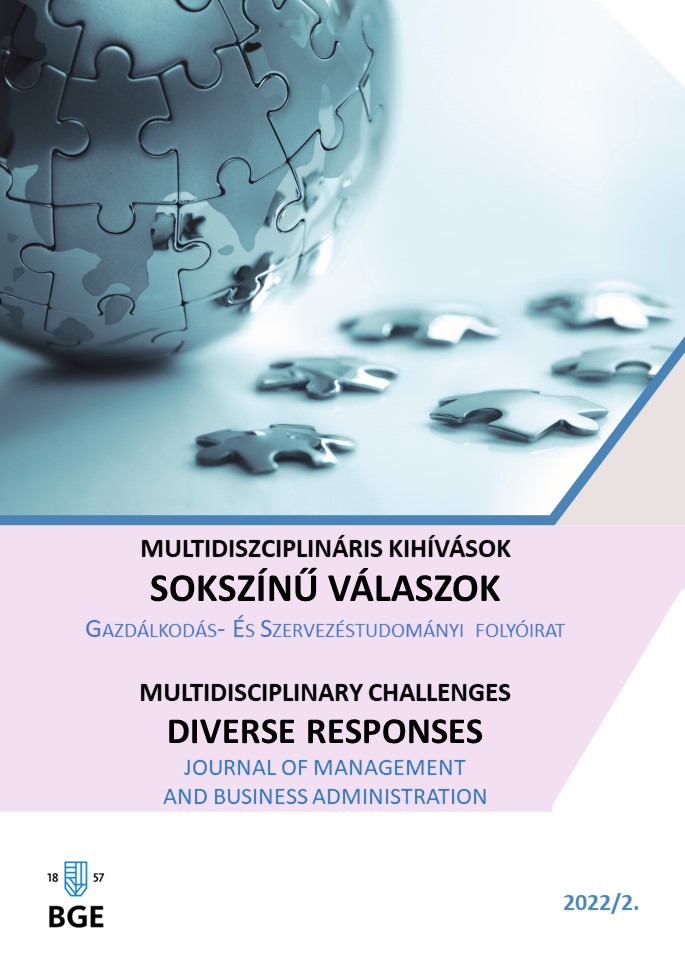Dominant Influence of Poland in East-Central Europe
Abstract
Poland plays significant economic role in Central and Eastern Europe. This study focuses on Poland's dominant influence in the Central and Eastern European region. For more than a century, the direction of Polish foreign policy has been determined by the country's geographical location and position as a major power. The aim of this study is to analyse and present the orientation of Polish foreign policy.
The paper is divided into six parts. In the first part, I will present the theoretical framework of the research and in the second part the methodology of the study. In the third part of my research, I will give the historical background of the current Polish economic and political situation. I will then describe Poland's role in the 1990s and the Polish-Russian relations, including a detailed discussion of the Russian-Ukrainian conflict. Finally, I will examine Polish energy policy, concluding with a discussion of Poland's decisive influence.
The research methodology of this paper follows the research design most used in social sciences: outline of a theoretical framework based on previous theoretical findings, a summary of the main academic and empirical literature, followed by the definition of hypotheses, operationalisation of the research questions and the development of the dimensions of the study, and finally, conclusions.
The role of Poland is becoming increasingly important not only within the region of Central and Eastern Europe but also globally. On the one hand, it can provide primary assistance to people fleeing Ukraine in the face of the current Russian aggression and support the humanitarian aid provided by the European Union. On the other hand, its excellent relations with Norway make it an excellent business partner and mediator in energy policy for the countries of Central and Eastern Europe.
References
Arms Control Association: Russia’s Military Doctrine. https://www.armscontrol.org/act/2000-05/russias-military-doctrine
Gawlikowska-Fyk, A. & Godzimirski, J. M. 2017. Gas Security in the Pipeline – Expectatinos and Realities, PISM Policy Paper, No. 2 (155), 1-7.
Gerencsér, T., Grad, M. & Mitrovits, M. 2019. Magyar zászló a Visztula felett. Magyar–lengyel kapcsolatok a magyar diplomácia szemével. Budapest: Országház Könyvkiadó.
Halmai, P. 2020. Európai Gazdasági Integráció. Budapest: Dialóg Campus.
Halmosy, D. 1983. Nemzetközi szerződések 1918-1945. Budapest:
Közgazdasági és Jogi Könyvkiadó-Gondolat Könyvkiadó.
Mitrovits, M. 2020. Tiltott kapcsolat, A magyar-lengyel ellenzéki együttműködés 1976-1989. Budapest: Jaffa Kiadó.
Rácz, A. 2020. Oroszország biztonságpolitikai törekvései a posztszovjet térségben. Védelmi Tanulmányok, Budapest, 2020/3. 8-45.
Romsics, I. 2020. Nemzet, Nemzetiség és Állam, Budapest: Helikon kiadó.
Snyder, T. 2012. Véres övezet, Európa Hitler és Sztálin szorításában. Budapest: Park Könyvkiadó.
Steinmo, S., Thelen, K. & Longstreth, F. (eds) 1992. Stucturing politics. Historical insitutionalism in comparative analysis, Cambridge: Cambridge University Press.
Tálas, P. & Sz. Bíró, Z. 2010. A lengyel-orosz kapcsolatokról Szmolenszk után. Nemzet és Biztonság, 2010, május. 66-81.
Tulmets, E. 2014. East Central European Foreign Policy Identity in Perspective. London: Springer.
Európai Tanács és az Európai Unió Tanácsa: Az EU válasza Oroszország Ukrajna elleni inváziójára. 2022. (online) Elérhető: https://www.consilium.europa.eu/hu/policies/eu-response-ukraine-invasion/#how (Az utolsó letöltés ideje: 2022.11.28. 20:00)


























